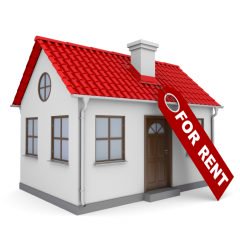Most ill-affordable rental regions in England revealed
A new investigation has found that tenants spend over a third of their disposable income on rent across many areas of England.
Analysis from the BBC shows that the typical rent of a one-bedroom property in nearly half of districts, boroughs and cities costs more than 30% of the average take-home salary in the area.
Unsurprisingly, this problem is most prominent in London and the South East.
Problems
BBC England’s data unit looked at average rents for varying property types in each local authority area, alongside the average wage in these regions. The unit looked at Office for National Statistics figures to ascertain their information.
Shelter and the Joseph Rowntree Foundation found that spending more than one-third of your disposable income on rent or a mortgage could lead to difficulties affording other basic amenities. What’s more, would-be homeowners are being more and more priced out of the market.
Looking at average rents and typical weekly wages, the investigation discovered:
- renting a studio flat costs more than 30% of take-home pay in all bar one London borough
- the average cost of renting a room or flat in London is £607 per month, in comparison to £424 in the South East
- In the South East, the most expensive places to rent are Surrey, Oxfordshire and Tunbridge Wells in Kent
- Renting a room in a house or flat would take more than 30% of disposable income in 15 of 32 London boroughs
The investigation found that the most expensive places to rent (where average rents exceed 30% of net pay) are:
- Kensington and Chelsea
- Westminster
- City Of London
- Camden
- Islington
- Hackney
- Tower Hamlets
- Hammersmith and Fulham
- Lambeth
- Southwark

Most ill-affordable rental regions in England revealed
Crowded
Dan Wilson Craw, policy manager at Generation Rent, noted, ‘across London and the South East, the only option for average earners is to squeeze themselves into ever more crowded flat shares. This might work for some, but it’s a completely unsustainable situation for anyone who wants to settle down. Unless rents start coming down, the capital and its hinterland will start losing workers and that will weaken the national economy.’[1]
Experts suggest that housing should cost no more than 30% of take home pay. The BBC investigation found that 30% of average monthly take home wage in England is £550. However, the typical rent for a one-bedroom flat is £694. This figure rises to £760 for a two-bed and £867 for three-bed.
North-South divide
Data from the report shows that 142 of 324 regions in England have average rents for a one-bedroom property over the 30% take-home wage for that area. Interestingly, only Manchester, Salford and York were Northern regions in this total.
Renting a one-bedroom property in the North falls within recommended limits, except in Salford, Trafford and Manchester. In the East and West Midlands, renting property falls within recommended limits.
Campbell Robb, chief executive of Shelter, said, ‘our chronic housing shortage means private renting is no longer a stepping stone for people starting out in life-it’s where a quarter of families have to live. And with sky high rents eating up a huge chunk of people’s monthly income, it’s sadly no surprise that at Shelter we’re hearing from growing number of families who are struggling just to cover the cost of the basics and keep a roof over their heads.’[1]
Henry Gregg, assistant director of communications and campaigns at the National Housing Federation, noted, ‘these figures provide yet more evidence of how seriously unaffordable renting is in this country. Sky-high rents mean unstable and uncertain living situations are becoming the norm.’[1]
Stretching pay-packet
Analysis shows that the median monthly take home pay in England is around £1,833, after tax and national insurance payments.
The regions with the most left over cash between take-home pay and rent were found to be:
- Copeland
- Derby
- Fylde
- Barrow-in-Furness
- North Lincolnshire
- Selby
- Darlington
- Hartlepool
- Amber Valley
- West Lindsey
Alan Ward, chairman of the Residential Landlords Association, observed that there is a ‘supply crisis,’ with the Government focusing on home ownership.
Meanwhile a Department of Communities and Local Government spokesman said, ‘more than 300,000 people have been helped in homeownership through government-backed schemes since 2010, while almost 900,000 more homes have been delivered since the end of 2009.’[1]
‘But we know there is more to do. That’s why we’ve doubled the housing budget, including investing £8bn in an extra 400,000 quality affordable homes to rent and buy. We’re also extending shared ownership, giving more people the chance to buy a home with a deposit of as little as £1,500,’ they added.[1]
[1] http://www.bbc.co.uk/news/uk-england-36794222







